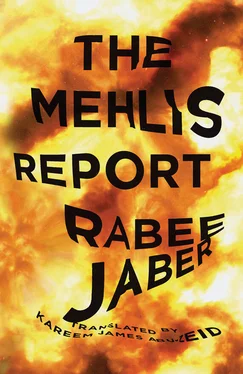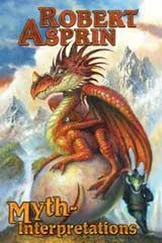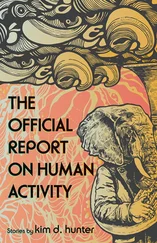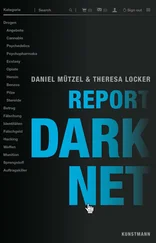As he silently listens to her words, Saman can feel his heartbeat racing. His stomach seizes up as he waits for the end of the story. But Cecilia stops talking.
What did you do? he asks.
She says she didn’t do anything. She went back to the storeroom and shoved the fridge back into place. She didn’t know what to do. But when she was standing there in the darkness, she had thought of him.
He asks her when this happened.
Yesterday, she replies, before we closed.
Had she asked the people she works with about the tunnel?
She says she hasn’t asked anyone.
Why not?
I don’t know, she says. I just haven’t.
He can feel her holding back. He can tell she was about to say, “I wanted to speak to you first,” but she doesn’t say it. Why not? Was it because he said he was with friends outside Beirut last night?
He says the tunnel could itself be another storeroom, an unused one. Or it could lead to another storeroom. Why doesn’t she ask someone at Monoprix? The management will surely know.
But he feels tired as he utters these words, as if he were running in a place without air, as if he were falling into the sea.
How could it be a storeroom? she asks. It’s so long and narrow.
He asks her what she wants him to do, he can get dressed and come over right now, he can be there in a half hour, less, in a quarter hour, and they can talk. He says he can hardly hear her voice over the phone, it’s better to talk in person, he can be there in ten minutes.
She says she doesn’t want to raise her voice because the place is starting to get crowded. And she says no, don’t come now, we’ll talk in the evening.
Why don’t we meet in the afternoon, he asks, I can come by and we can eat lunch together and talk, I’ll come by Monoprix at one thirty, ok?
No, she says, I’ve got a lot going on today, especially in the afternoon. We’ll meet at my place, at nine o’clock, after I’m done with work.
Saman Yarid lies down on his bed. “Can I fall asleep?” Milk doesn’t work, neither does Lexotanil (Bromazepam), or turning on the AC. He tosses and turns in the wide bed. He can’t sleep. So he gets up from the crumpled sheets.
He lights the gas stove and makes another pot of coffee. His head is full of nails. And he can feel some pressure in his chest. When the smell of coffee fills the air, he decides he doesn’t want any. He pours the coffee into the sink, takes some cold water out of the fridge, and goes over to the TV.
Light pours in from the high circular skylights and undulates on the ceiling. Air enters through the windows, bringing in the noise of the nearby streets (the roads are packed now with cars heading down to the Jesuit University, a car for every person: the traffic is horrible). The air also brings in an unfamiliar smell. This isn’t the smell of the oak tree and the garden outside the window. What is this awful smell? The sewers? On the other side of Mount Achrafieh, where he spent last night, a horrid stench always assails the houses at the end of summer: the trash at the Burj Hammoud Landfill starts rotting, the cumulative effect of all the summer heat. And the slaughterhouse sends out gases too: the remains of decomposing carcasses. But those smells only reach this side of the mountain when there’s a strong wind. He can’t hear the wind in the oak tree, so why is the smell so powerful right now? Have they opened up the sewers in one of the nearby streets?
Saman Yarid closes the windows and turns on the air conditioning. Lying on the big cozy sofa in front of the TV, he tries closing his eyes — maybe he can fall asleep. This familiar sofa. The smell of its fabric. The ancient engraved wood of the headrest: he knows these engravings by heart. He sinks farther into the sofa and tries to sleep. The noise of Monday morning comes in from outside. It won’t let him sleep. The sound of the AC fails to overcome it. Horns and roaring engines: a city rushing by. At least that smell is fading. It slowly stops reaching his nose. Where are they all rushing off to outside? And why are they honking their horns? Sirens wouldn’t be able to clear a path through that sea of steel and tin and glass.
Images of wrecked villages appear on TV. Where is that? Kashmir? He turns up the volume as other images take their place: a city’s collapsing buildings. He watches as a building buckles, like an old man whose knees have snapped. In 1993 he started going down to Martyrs’ Square to look at the controlled explosions. Was it ’93 or ’92? As the years go by time blends together. He remembers the buildings rigged with dynamite, how they convulsed inside an awful cloud of dust and noise, and then collapsed. He had looked on without understanding: how could those buildings topple so easily when they were filled with steel? How could they just cave in like that? On the TV, a police officer is speaking in front of several microphones. A high-ranking officer — that’s clear from all the medals and stars. Saman is and is not listening. His head is ringing. His chest is tight. He should call the hospital and make his appointment. This pressure beneath his ribs is making it difficult to breathe. A street covered in debris, and a man carrying his child and walking among the overturned cars and the wrecked doors of shops. Goods are strewn on the road, and children are jumping over them. How were they saved from death? The news ticker at the bottom of the screen announces that an entire generation is buried beneath the rubble of Pakistan’s schools. International aid hasn’t arrived yet. Ambulances. Rescue workers wearing helmets and masks, climbing up the steel of a collapsed building. No, not one building, an entire complex of buildings turned into a mountain of concrete and steel. There are survivors beneath the rubble, survivors in the belly of that mountain of destruction. They can hear their voices beneath the debris. Workers carrying drills, climbing up the wrecked concrete. He wasn’t in Beirut when they blew up the Rivoli Cinema. He was away on a trip. When he returned, he went down to Martyrs’ Square and for the first time saw the vast blue sea as he stood by the central monument — the broad building had been blocking the water. The building fell, and the rubble was removed. Where was the rubble taken? To the Normandy Landfill? A cape of land stretching into the sea. He had seen some of the initial designs. There, off the cape that crossed into the landfill, glass towers would rise up. They wouldn’t be able to do that with the Burj Hammoud Landfill. The Normandy Landfill was right by the commercial district, the new center of the city. What was Burj Hammoud linked to? To the Armenian district. To a packed maze of houses and old neighborhoods of refugees who have been living like that since the First World War. One of his girlfriends once described her childhood home there to him: there was no water and no electricity. He didn’t believe her. How could that be? A house in Beirut without any water or electricity? That’s impossible, he told her. She described houses of clay and wood and tin. Her descriptions matched what he had seen on TV about the Palestinian camps. It was best for him not to think of such things. The world was full of misery. “But that’s not my world,” Saman Yarid thought to himself.
Not sleeping enough always saps his strength. He changes the channel. On National Geographic he sees elephants crossing green plains: the elephants are being threatened with extinction in Sri Lanka. There are only 2,500 left. The forests have given way to rice and tea fields. The English cut down the trees. And land mines from the Civil War are now dismembering the elephants. He sees a small elephant whose bones are visible. An emaciated creature, bones poking through its skin. It isn’t walking on all four legs: it’s missing one of its feet. It’s moving strangely. Its belly almost touches the ground as it moves forward, trying to keep up with the herd. Its pointed back makes it look like a pyramid. Why is he watching this?
Читать дальше












